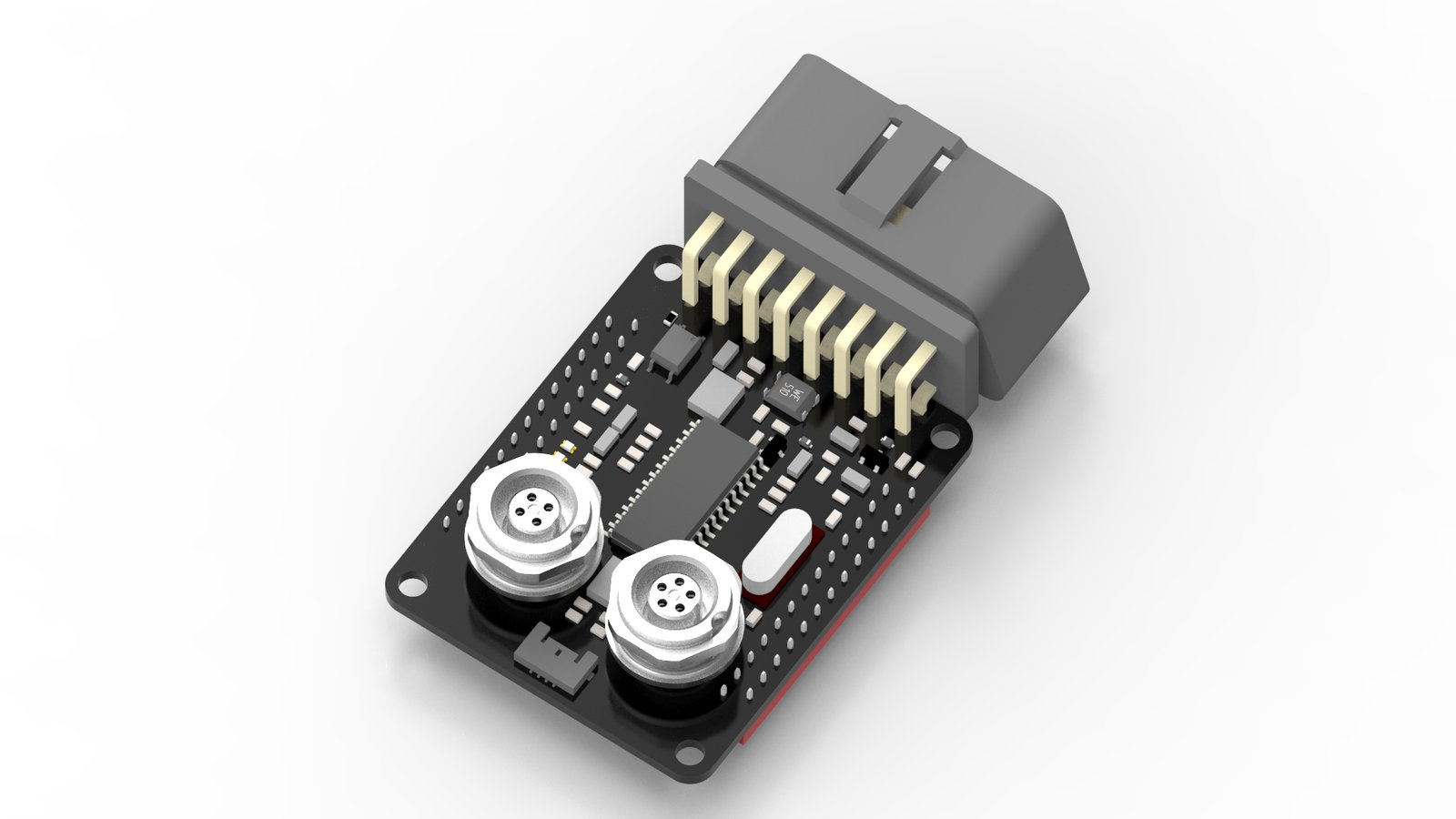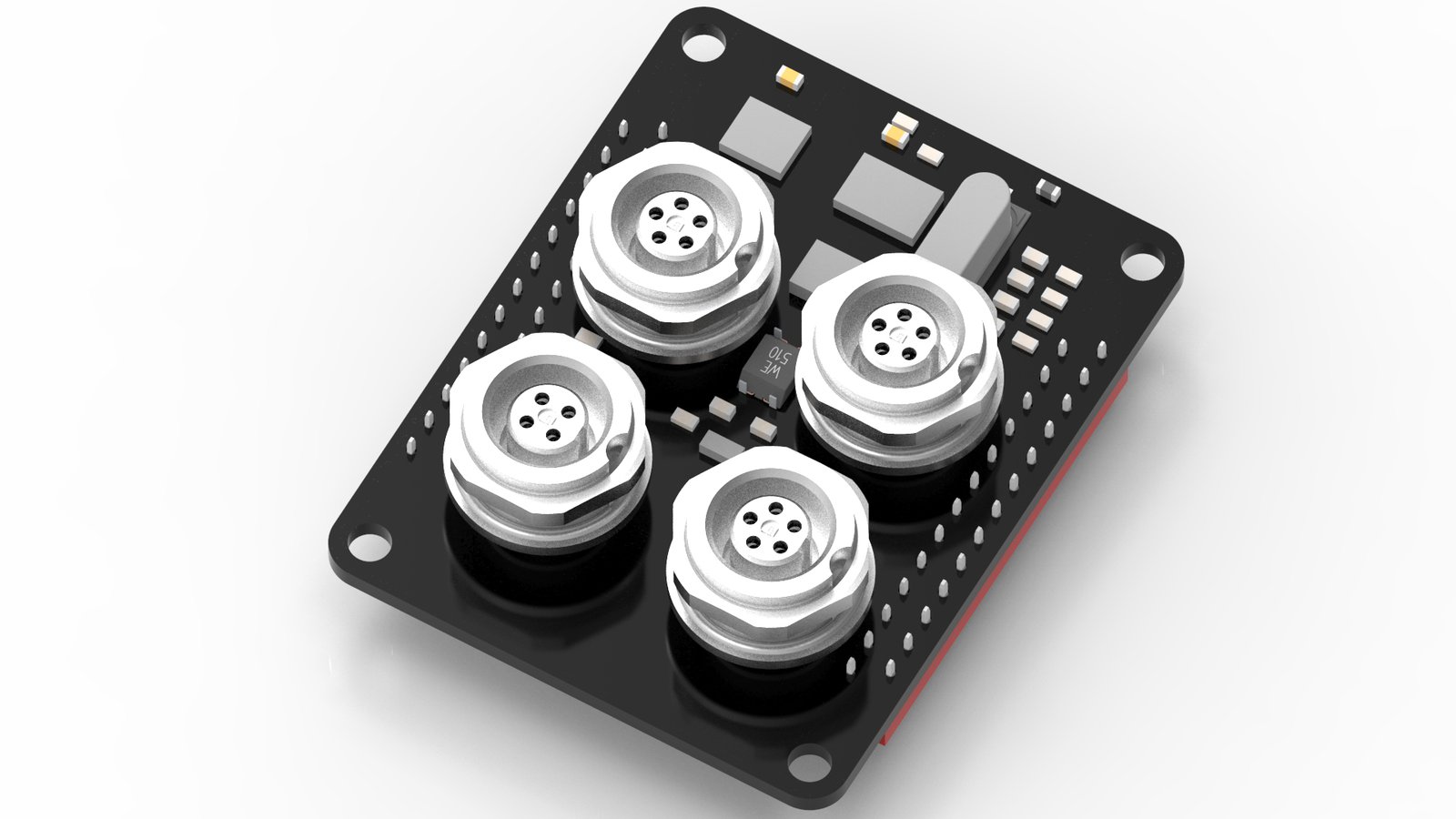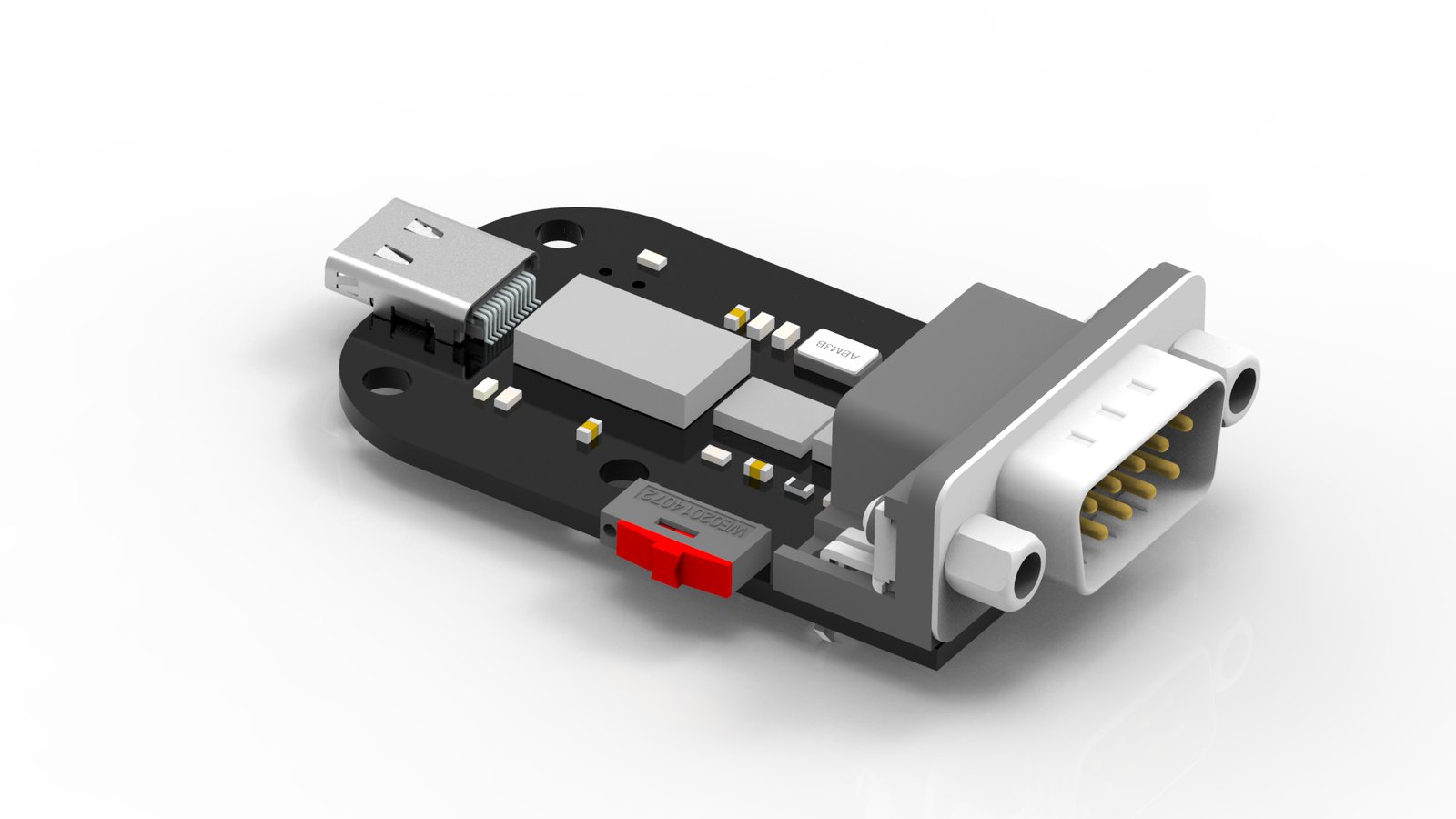Project update 5 of 7
New Expansion Boards
by Florian EichLong time no see! Long time no see! We’ve been hard at work on expansions and demos, and we’re looking forward to showing them off in the coming days and weeks!
In case you’re wondering, we plan to sell all of the additional expansion boards presented here, though we can’t yet commit to a time line for their availability. They are, of course, OSHWA certified, and all design files are available in our GitHub repository.
Introducing mini::obd
When working with cars that were manufactured in the last 25 years, one often finds oneself dealing with a standard on-board diagnostic (OBD) interface. This trapezoidal connector holds pins for common vehicle communication buses, such as ISO 9141-2 (K-line) and CAN. There is a common IC that implements an abstraction for OBD: the ELM327 by ELM Electronics, which is exactly the chip that lives on the mini::obd. The ELM327 connects via serial interface and communicates with the MCU via AT commands (see the datasheet for details).
Of course, we add some additional functionality here as well. For one, we keep the Binder connector footprints. The MCU’s CAN interface is available and can be used to snoop on the OBD CAN, for example, and some IOs are available for other uses. The display connector is also present (as on the mini::grid and mini::pit), should you want to add a display.
We have showcases featuring the mini::obd on the horizon as well, so stay tuned!
Introducing mini::lab
All of the expansion boards presented thus far have been optimized for relatively specific use cases. Looking for more versatility? The mini::lab has got you covered.
mini::lab sports an additional CAN that’s connected to the MCU via serial. It has a standalone controller but uses the same transceiver and software-switchable final resistor as the first CAN. It has the same IOs as the mini::grid and the mini::pit, plus an additional set. It also has a high-precision ADC for your more sophisticated sensor needs. They are, of course, wired out on our favorite connector footprints so you can use the board to go straight from the lab to the 3D printed housing, then on to wherever it will be living.
Extending the tool box: the usb-can
When working with CAN bus, you’ll often just want to listen in quickly. You can of course use mini::base and mini::out for that, but what do you do when those boards are integrated into your project and you’re trying to debug your CAN on mini::base?
For our part, we often find ourselves reaching for a PCAN-USB or a USBtin. These tools—especially the latter—have been on top of our toolbox for the longest time, and this is our chance to pay it tribute. The usb-can is based on the USBtin, but we’ve added a few features:
- A USB Type-C connector (we love those in case you hadn't noticed) because charging cables for phones are easy to come by
- A switchable final resistor because that's always the first thing to try when things aren't working, and
- A D-Sub connector with the usual pinout.
We’re working on a 3D-printable housing, as well, which you’ll be able to find in our usb-can GitHub repository.
That’s it for today, but we look forward to sharing our showcases for these boards soon!


